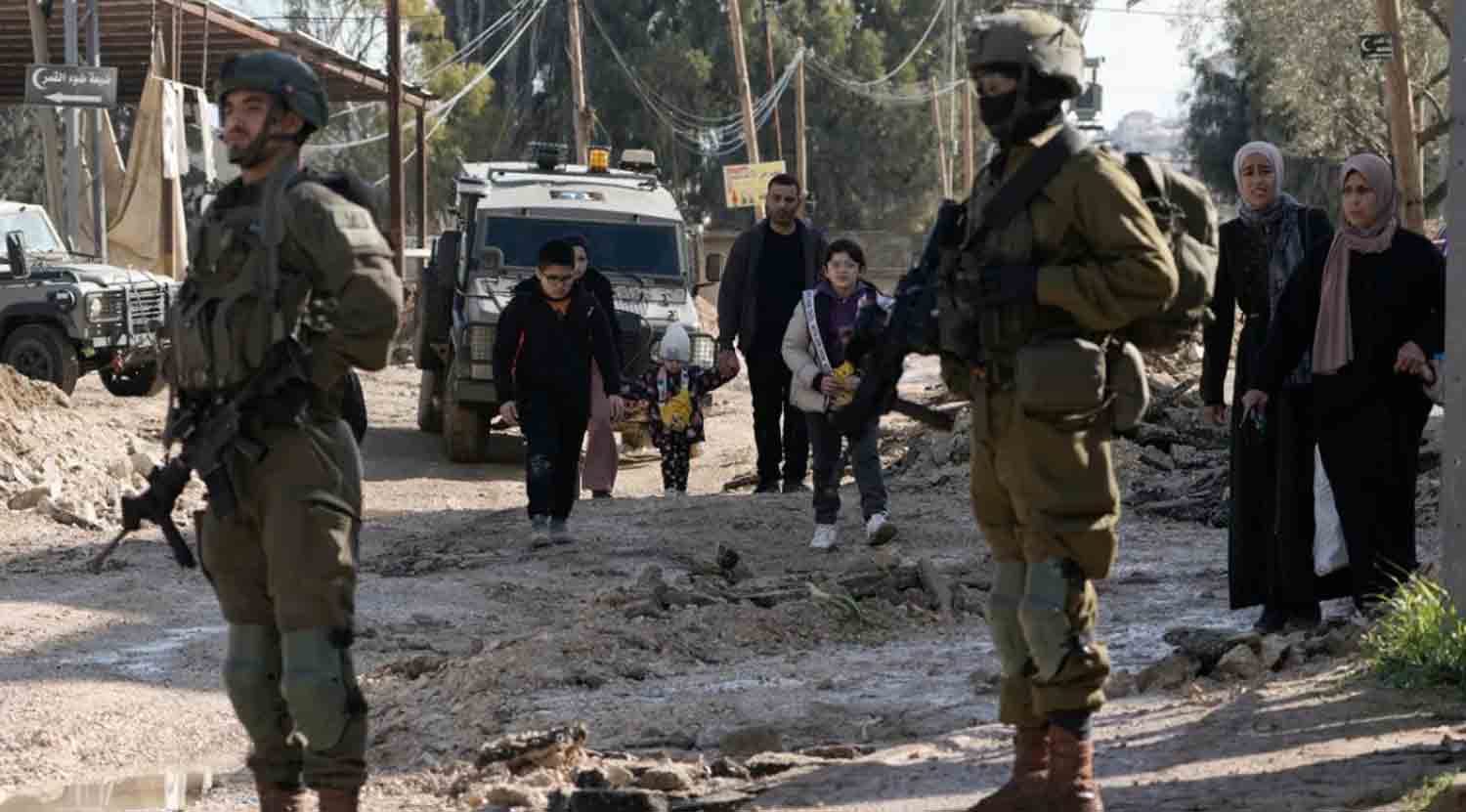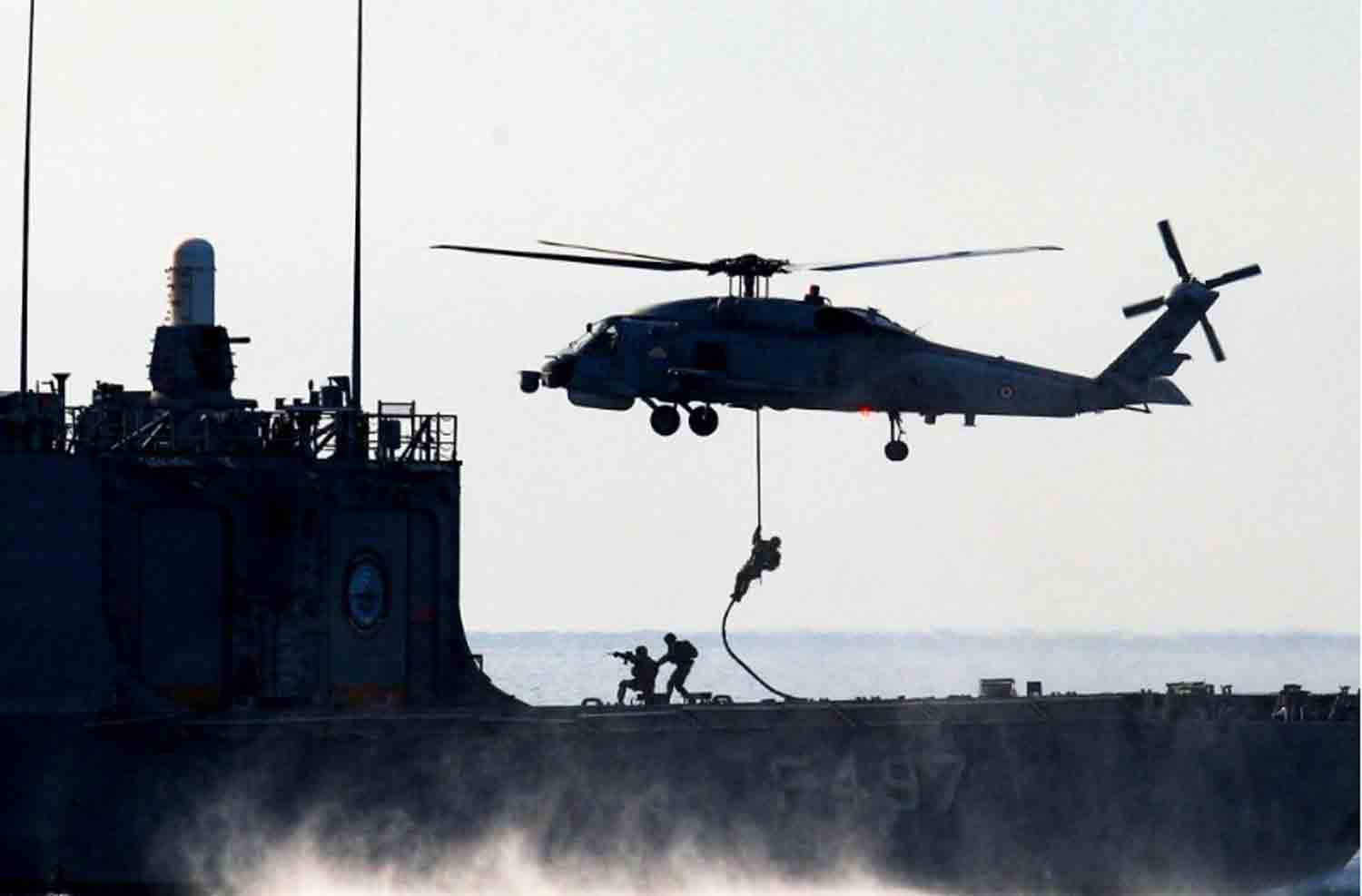The Israeli military has escalated its operations throughout the occupied West Bank, focusing on Palestinian militant groups, establishing roadblocks, and isolating communities from external access.
This sudden increase in Israeli security activities in the West Bank has resulted in the deaths of at least 10 individuals and coincides with the initiation of a fragile ceasefire process in Gaza, which involves the phased release of Israeli hostages and a gradual withdrawal of Israeli forces.
This development also reflects a growing confidence among the Israeli right and many within the settler movement, influenced by remarks from certain officials in the Trump administration suggesting that Israel has the right to annex significant portions of the West Bank, which is home to over three million Palestinians.
Current Situation in the West Bank
Israeli Defense Minister Israel Katz has indicated a shift in strategy in the West Bank, stating that the military will implement tactics derived from the Gaza offensive to dismantle militant organizations and, as he puts it, “prevent the resurgence of terrorism.”
The Jenin refugee camp, located in the northern part of the West Bank and known for its narrow alleys and strong militant presence, is at the forefront of the Israel Defense Forces’ (IDF) latest operations.
On Tuesday, Katz announced that Operation “Iron Wall” aims to “eradicate terrorists and their infrastructure within the camp, ensuring that terrorism does not re-emerge after the operation concludes – a key lesson learned from the strategy of repeated incursions in Gaza.”
The operation in Jenin aims to achieve more than previous military actions. According to Jenin governor Kamal Abu Al-Roub, hundreds of civilians have evacuated the camp, leaving it nearly deserted. He informed CNN on Thursday that water supplies have been cut off and the region is currently “under siege.”
Recent operations by the IDF have led to the establishment of additional roadblocks throughout the West Bank. The Colonization and Wall Resistance Commission reported on Thursday that there are now close to 900 military checkpoints, including over 173 iron gates that have been set up since October 2023.
Al-Roub characterized the IDF’s actions as “one of the largest and most intense” operations to date, noting that more than 20,000 individuals have been displaced and many have been detained.
Palestinian media reported on Thursday that the IDF has set up roadblocks near Ramallah and has sealed off a village in that vicinity. Furthermore, military checkpoints in the Nablus area have been strengthened, resulting in thousands of individuals being stranded due to extensive delays.
In Jericho, residents faced difficulties leaving the area as military checkpoints were closed. Palestinian journalists indicated on Thursday that tear gas was deployed against individuals waiting at a checkpoint in Jericho.
A woman reportedly died from a heart attack at a checkpoint near Hebron after the IDF obstructed her transfer to a hospital, according to the Palestinian Ministry of Health on Wednesday.
Mustafa Barghouti, an independent Palestinian politician, informed CNN that a journey from Ramallah to Jericho, which typically takes 45 minutes, can extend to five hours on certain days.
“Movement from both the southern and northern regions of the West Bank is largely immobilized, while illegal Israeli settlers traverse freely and continue to assault Palestinian vehicles on the roads,” he stated.
“We are witnessing alarming trends of unlawful force being applied in the West Bank that are unnecessary, indiscriminate, and excessive. This mirrors the strategies employed by Israeli forces in Gaza,” remarked Angelita Caredda, the Middle East and North Africa regional director for the Norwegian Refugee Council (NRC).
The IDF asserted on Thursday that the checkpoints serve as “a tool in our fight against terror, facilitating civilian movement while providing a layer of screening to prevent terrorists from escaping.”
What impact does the ceasefire have on the situation in the West Bank?
The operation commenced two days after the initiation of the first phase of the Gaza ceasefire, indicating a shift in the Israeli government’s priorities.
Far-right Finance Minister Bezalel Smotrich stated on Tuesday: “We have started to alter the security strategy in Judea and Samaria [the Biblical term many Israelis use to refer to the West Bank] as part of our campaign to eliminate terrorism in the area.”
He further asserted that the cabinet had determined that security in the West Bank has become an official objective of war for Israel. However, the Prime Minister’s Office did not verify this assertion.
The ceasefire in Gaza has enabled Israeli security forces to shift their focus to the West Bank, where Hamas-aligned groups have increased their activities. However, there is a concern that heightened Israeli military operations in the West Bank could jeopardize the ongoing ceasefire in Gaza.
Katz has repeatedly claimed that Iran is fueling the rise in militant activity in the West Bank by providing arms to these groups.
“We will not permit Judea and Samaria to mirror the situations in Gaza or southern Lebanon… We will take action to sever Iran’s influence in the refugee camps of the West Bank and safeguard the security of the local communities and residents.”
Israeli officials have indicated that the Palestinian Authority (PA) has struggled to effectively address and suppress militant factions. A December operation by Palestinian security forces targeting militants in Jenin achieved minimal results. The militant groups include the Al Aqsa Martyrs’ Brigade, Palestinian Islamic Jihad, and the Qassem Brigades, which operate collectively under the Jenin Battalion.
According to a senior military source cited by Israel’s Channel 11 on Thursday, “The PA has done what it can. We acknowledge the necessity to act against the terrorists’ capabilities; we are no longer waiting for their intentions. Our objective is to neutralize the Jenin battalion.”
The impact of the Trump administration on regional dynamics
For some right-wing Israelis, the arrival of the Trump administration, coupled with successes in weakening Hamas and Hezbollah, presents a distinct opportunity to enhance Israeli dominance in the region.
During his initial term, Trump shifted the longstanding US position on settlements, declaring them not illegal, a stance that was reversed by Biden. Several of Trump’s appointees have indicated that Israel possesses the right to annex the West Bank.
Currently, over 500,000 Jewish settlers reside in the Israeli-occupied West Bank, territory seized from Jordan during the 1967 conflict. International law regards these Jewish settlements as illegal.
Elise Stefanik, who is expected to be the new US ambassador to the United Nations, expressed her agreement with the notion that Israel has a “biblical right” to annex the West Bank. Mike Huckabee, anticipated to be the US ambassador to Israel, has previously stated that there is “no such thing as a Palestinian.”
On his first day in office, Trump lifted sanctions that the previous Biden administration had imposed on far-right Israeli settler groups and individuals accused of violence against Palestinians in the occupied West Bank.
Violence against Palestinians by extremist settlers has become a frequent occurrence in the West Bank. In 2024, the UN reported 1,420 incidents of settler violence that resulted in casualties and/or property damage in the West Bank, including East Jerusalem.
While some perpetrators were apprehended, the Israeli Defense Ministry recently opted to release Jewish settlers held under administrative detention, citing the anticipated release of terrorists as part of the Gaza ceasefire agreement.
Katz remarked that the decision to release the settlers would “send a clear message of strengthening and encouraging settlement, which is at the forefront of the struggle against Palestinian terror and increasing security challenges.”
Discover more from Defence Talks | Defense News Hub, Military Updates, Security Insights
Subscribe to get the latest posts sent to your email.





